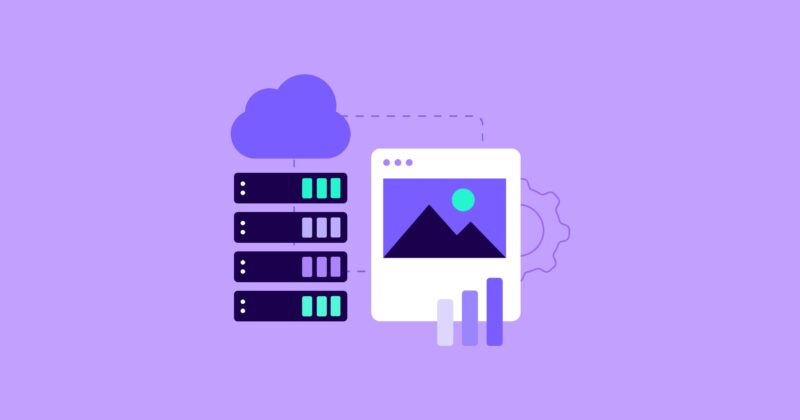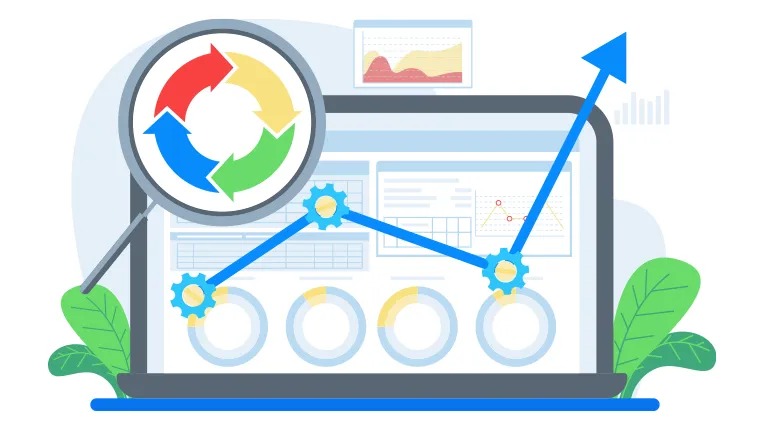With cyber threats becoming increasingly common, businesses are rethinking the resilience of their digital infrastructure. A growing number of decision-makers are asking questions like:
- What protection should my hosting provider offer against DDoS attacks?
- How can I minimise downtime and ensure consistent availability?
- Is there a difference between standard hosting and DDoS protected hosting?
This article answers these essential questions, providing insight into how hosting choices influence business continuity and digital security. It also outlines why integrating a DDoS mitigation layer through specialised hosting services is critical for modern enterprises.
Key Points
- Downtime now poses a direct financial and reputational risk for businesses.
- DDoS protected hosting actively mitigates attacks to keep services available.
- Built-in security features in hosting impact customer experience and business continuity.
- Attack sophistication is increasing, with layered and persistent threats.
- Hosting solutions must scale with business growth and shifting security demands.
- Strategic hosting investments reflect commitment to digital trust and resilience.
Understanding the Real Cost of Downtime

Service disruption is no longer just a technical issue; it’s a direct business threat. According to IBM’s 2023 Cost of a Data Breach report, the global average cost of a data breach reached $4.45 million, marking a 15% increase over the last three years. DDoS attacks—often used to overwhelm and disable online services—are a frequent cause of such outages.
Even short periods of downtime can damage customer trust and lead to lost revenue. For organisations operating in e-commerce, finance, and SaaS, the margin for error is minimal. This is where choosing a hosting solution that incorporates built-in DDoS protection becomes a strategic investment, not just a technical safeguard.
Why DDoS Protected Hosting Has Become Essential
DDoS protected hosting is a form of hosting service that includes active security measures to detect and mitigate Distributed Denial of Service attacks. It allows businesses to remain operational even while under attack, preserving service availability and safeguarding customer experience.
Research from Cloudflare indicates that HTTP DDoS attack traffic increased by 65% in Q3 2023 compared to the previous quarter. Attackers are also becoming more sophisticated, combining volumetric attacks with application-layer disruptions.SiliconANGLE+3Techitup Middle East+3The Cloudflare Blog+3
By investing in DDoS protected hosting, businesses can ensure that attack traffic is filtered and neutralised before it impacts end users. This proactive approach enables websites and applications to remain accessible without compromising performance.
Key Features to Look for in a Secure Hosting Provider

Not all hosting providers offer the same level of security, and many businesses fail to evaluate protection capabilities until after an incident occurs. The following are essential features for any hosting solution intended to support secure, high-availability operations:
- Inline DDoS mitigation: Real-time identification and blocking of malicious traffic without impacting legitimate users.
- Scalability: The ability to absorb high-volume attacks without degradation of service.
- Low-latency performance: Security should not come at the cost of speed or user experience.
- 24/7 monitoring and alerting: Constant visibility into traffic patterns and threats.
- SLAs for uptime and protection: Clear guarantees backed by measurable performance metrics.
These features ensure that businesses are not caught off guard and can respond effectively to threats without relying solely on reactive measures.
Business Continuity and Brand Reputation
Maintaining continuous availability is critical not only for transactional functionality but also for maintaining public trust. In the eyes of users, an inaccessible service often equates to unreliability. For customer-centric brands, this perception can significantly erode market position.
A secure hosting infrastructure supports broader business continuity planning by allowing internal teams to focus on operational excellence rather than incident response. It also communicates a clear message to customers and stakeholders: the organisation values uptime, data protection, and digital resilience.
Choosing Hosting with Long-Term Growth in Mind

As businesses scale, the volume of traffic—and potential attack surface—increases. A static approach to infrastructure will inevitably become a bottleneck. Future-ready organisations prioritise flexible hosting arrangements that adapt to traffic spikes, regulatory changes, and evolving threat landscapes.
DDoS protected hosting supports this approach by integrating adaptive defence mechanisms capable of identifying new attack patterns in real-time. Rather than retrofitting security after an incident, this model builds protection into the core infrastructure, providing a scalable defence that evolves alongside business needs.
Understanding Types of DDoS Attacks
Not all DDoS attacks are created equal, and recognising the common types helps businesses align their protection strategies effectively:
- Volumetric Attacks – Flood servers with excessive traffic to exhaust bandwidth.
- Protocol Attacks – Exploit server resource limits through manipulation of protocol weaknesses.
- Application-Layer Attacks – Target specific applications to exhaust processing power and disrupt user interaction.
Understanding these distinctions allows businesses to evaluate hosting services based on their capacity to handle a broad spectrum of attack vectors.
How to Evaluate Hosting Providers for Security
Before committing to a provider, ask the following questions:
- Do you offer automated DDoS detection and mitigation?
- What is your average response time to detected threats?
- Can you scale bandwidth rapidly during an attack?
- What kind of reporting and visibility tools do you provide?
- Are your uptime and protection metrics backed by SLAs?
These inquiries offer insight into how proactive and capable a hosting provider is in real-world attack scenarios.
Comparing Standard vs. DDoS Protected Hosting

Here’s a simple table outlining the differences between standard and DDoS protected hosting:
| Feature | Standard Hosting | DDoS Protected Hosting |
| DDoS Mitigation | No | Yes (automated + manual) |
| Performance Under Attack | Likely degrades | Remains stable |
| Uptime Guarantees | Limited or none | Backed by SLAs |
| Real-Time Monitoring | Basic or none | 24/7 Active |
| Target Use Case | General websites | Critical applications & eCommerce |
Final Thoughts
The conversation around hosting is shifting. No longer viewed as a simple cost centre, it is now a foundational element of operational resilience and digital trust.
With attack frequency and complexity on the rise, DDoS protected hosting is no longer optional for businesses operating online—it is essential.
Investing in a hosting provider that offers built-in DDoS protection ensures business continuity, safeguards reputation, and prepares your infrastructure for future challenges.
It’s a decision that reflects forward-thinking leadership and a commitment to long-term digital resilience.
FAQs
- What is a DDoS attack in simple terms?
It’s when hackers flood a website with traffic to crash it, making it unavailable to real users. - How do I know if my site is under a DDoS attack?
You’ll notice sudden slowdowns, unavailability, or error messages. Hosting dashboards may flag abnormal traffic. - Can I upgrade to DDoS protection later?
Yes, but it’s better to integrate it early to avoid gaps in service or reaction delays. - Does DDoS protection slow down my site?
No, good services are designed to filter threats without affecting user experience. - Is DDoS protection expensive?
Costs vary, but it’s often scalable and more affordable than losing revenue during downtime.
Related Posts:
- 5 Effective Website Strategy in Securing Important…
- Eco-Friendly Deliveries ─ Making Green Choices for…
- How to Choose the Best Hosting Service for Valheim
- Best Practices for Securing Your PC and Avoiding Malware
- 5 Things You Need to Know About Data Center Infrastructure
- Ways New Entrepreneurs Can Compete in the Tech…







